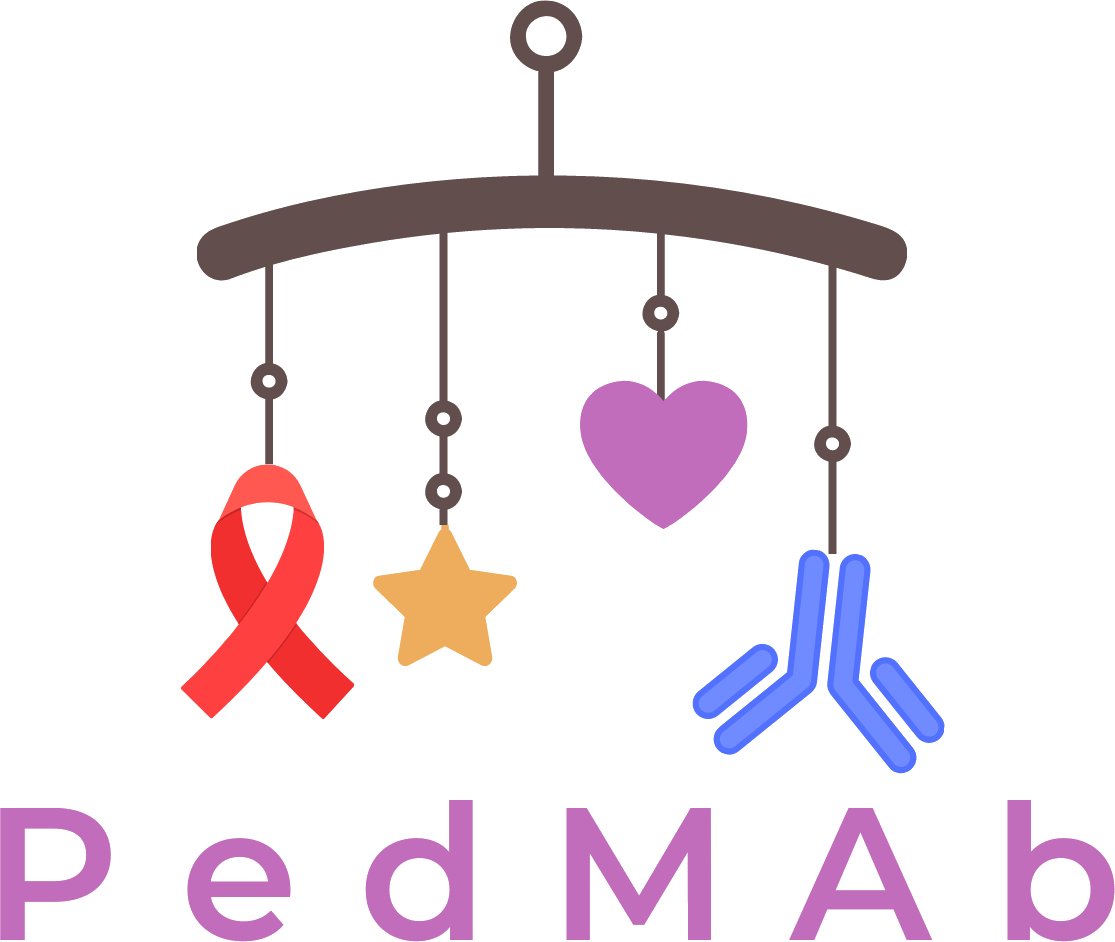
Overview
PedMAb1 is a sequential and randomized, phase I, single-site, single-blind, dose-finding, trial investigating the safety and PK profile of incrementally higher doses of broadly neutralizing antibodies, (bNAbs), VRC07-523LS and CAP256V2LS, in breastfeeding HEU neonates also treated with the standard-of-care antiretroviral (ARV) prophylaxis.
It is composed of 3 steps and has 6 arms (arm 1, 2, 3, 4, 5, 6 / 6b). Randomization will occur sequentially and will occur between Arms (i) 2 & 4, (ii) 3 & 5.
Before each randomization starts there will be a safety pause to review safety data of the current arms before moving to the next randomization. We aim to recruit about 48 babies.
The 3 steps are summarized below.

Primary Objectives
- To evaluate the safety (Adverse Events = AE) until day 28 after a single subcutaneous (SC) administration of one bNAb, tested at increasing doses within 96 hours of birth, in breastfeeding HEU neonates (arms 1 through 5).
- To evaluate the safety (adverse events) until day 28 after two single SC administration of two bNAbs, tested at increasing doses within 96 hours of birth, in breastfeeding HEU neonates (arms 6).
- To evaluate the safety (adverse events) until day 28 after two single SC administrations of two bNAbs, within 96 hours of birth and repeated at 3 months (arm 6/6b) in breastfeeding HEU neonates.
Primary endpoint
The primary endpoint, applying to all the primary objectives, is the proportion of participants who develop at least one ≥ Grade 3 AE, including local and systemic reactions, lab toxicities, and/or clinical events, that is possibly, probably or definitely related to each bNAb any time from the first day of study product administration through further 28 days following bNAb(s) administration (all arms).
Where is the study being conducted?
The study is being conducted in South Africa only. It is conducted at the SAMRC (South African Medical Research Council), HIDRU (HIV and other Infectious Diseases Research Unit) - Chatsworth Clinic Research Site (CRS) which is located on the grounds of the RK Khan Hospital and surrounding delivery facilities including St Mary’s Hospital, Cato manor clinic, Zwelibomvu clinic, Kwandengezi clinic and Kwadabeka clinic located in eThekwini district, KwaZulu-Natal.

RK Khan Hospital entrance

Chatsworth CRS location

Chatsworth CRS PedMAb1 prefab

Waiting area

Entrance to & Inside the prefab

Observation & Counselling rooms
Eligibility: Who can enrol?
PedMAb1 Inclusion and Exclusion Criteria: Mother |
|
Inclusion |
Exclusion |
|
|
PedMAb1 Inclusion and Exclusion Criteria: Infant |
|
Inclusion |
Exclusion |
|
|
